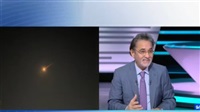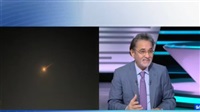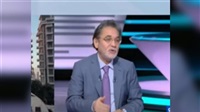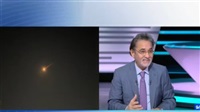Nato must leave no member state behind in the face of Russian aggression

The defence secretary, Ben Wallace, doesn’t seem to be the sort of chap to indulge in hype, so his warning about chances of a wider war in Europe, one for which Ukraine is a mere rehearsal, should be heeded.
It is perfectly plausible that, by accident or design, the conflict in Ukraine could spill over into a larger war in eastern Europe, moving Russian forces into the Baltic republics, the eastern Balkans and Poland – and ever closer to Germany. After all, not so long ago, many wise heads and intelligence chiefs believed the Russian army’s manoeuvres were a bluff.
Sweden and Finland, still outside Nato, are obviously also at risk. It is a terrible blunder, in that context, for Turkey’s President Erdogan to veto their membership and alienate his Nato partners. He should know that Turkey may soon need its Western allies to help it resist Russian bullying in and around the Black Sea and the Caucasus. President Erdogan may also soon find that the supposed Kurdish terrorists plotting away in Helsinki and Stockholm are the least of his problems.
Vladimir Putin’s old-fashioned, materialistic territorial ambitions aren’t exactly a secret, and the most recent of many atrocities, the bombing of a shopping centre, reminds us that he doesn’t mind how he achieves his ambitions. Every European nation is right to be fearful of Russia. The strategies of engagement, investment, economic partnership and sporting and cultural ties have failed to integrate Russia, or at least its leadership, into Europe. If they had succeeded, such a war would be unthinkable. Instead, the Kremlin has chosen to invade and terrorise its neighbours.
After much of Ukraine has been digested, at least in the Kremlin plan, there will be fresh, opportunistic attacks, with Moldova, like Ukraine, also outside Nato and vulnerable, the most tempting next target. It may not be possible to save that territory from Russian domination, should Russian forces in south Ukraine link up with pro-Russian separatists in Transnistria, effectively a Russian-occupied satellite state.
President Putin is aping all the worst ways of his Soviet and tsarist predecessors. We’ve had enough warnings. Ukraine will not satisfy him.
Hence the urgency with which Nato is scaling up its military readiness, such as its rapid response forces along its eastern flanks, increasing them tenfold. Even if the war in Ukraine proves unwinnable, Nato can – nay, must – use its considerable strength to defend itself. As Mr Wallace says, “it’s time to mobilise”.
President Putin needs to be in no doubt about the alliance’s determination to defend all of its members – no member state too small and weak to be left behind. The all-for-one, one-for-all principle of Nato is a formidable defence in itself, but it needs to be demonstrated and backed by military hardware. President Putin has to believe that Nato won’t abandon Ukraine, or Moldova, Finland and Sweden, and nor will it walk away from the likes of Estonia and Romania.
Sadly for Mr Wallace, his outspoken remarks don’t seem to have much of a sympathetic hearing in the Treasury or even No 10. Sources and rumours suggest that the current view is that the pandemic, the cost of living crisis (and, quietly, Brexit) means that the pledge to increase defence spending by more than inflation can no longer be honoured.
There seems to be, not for the first time, a certain lack of imagination and realism on the part of the Treasury. As the new head of the army, General Sir Patrick Sanders, points out, the run of events recalls the road to the Second World War, and this is a “1937 moment” for the UK: “We’re living through a period of history as profound as the one our forebears did 80 years ago.”
Mr Johnson likes to play at being Winston Churchill, but he doesn’t seem to be emulating his wisdom about the gathering storm – even though Mr Johnson suggested failure in Ukraine would be grounds for his resignation. It is routine for the present prime minister to overpromise and under-deliver, and fill the deficit with twisted statistics, boosterish rhetoric and photo ops. Such tactics may fool elements of the parliamentary Conservative Party, but they will not deceive the Kremlin.














